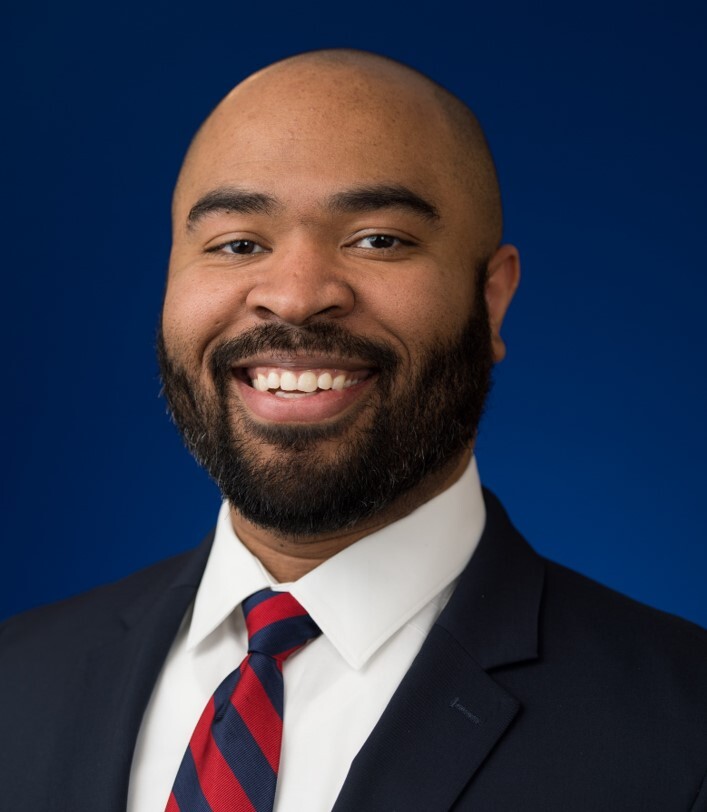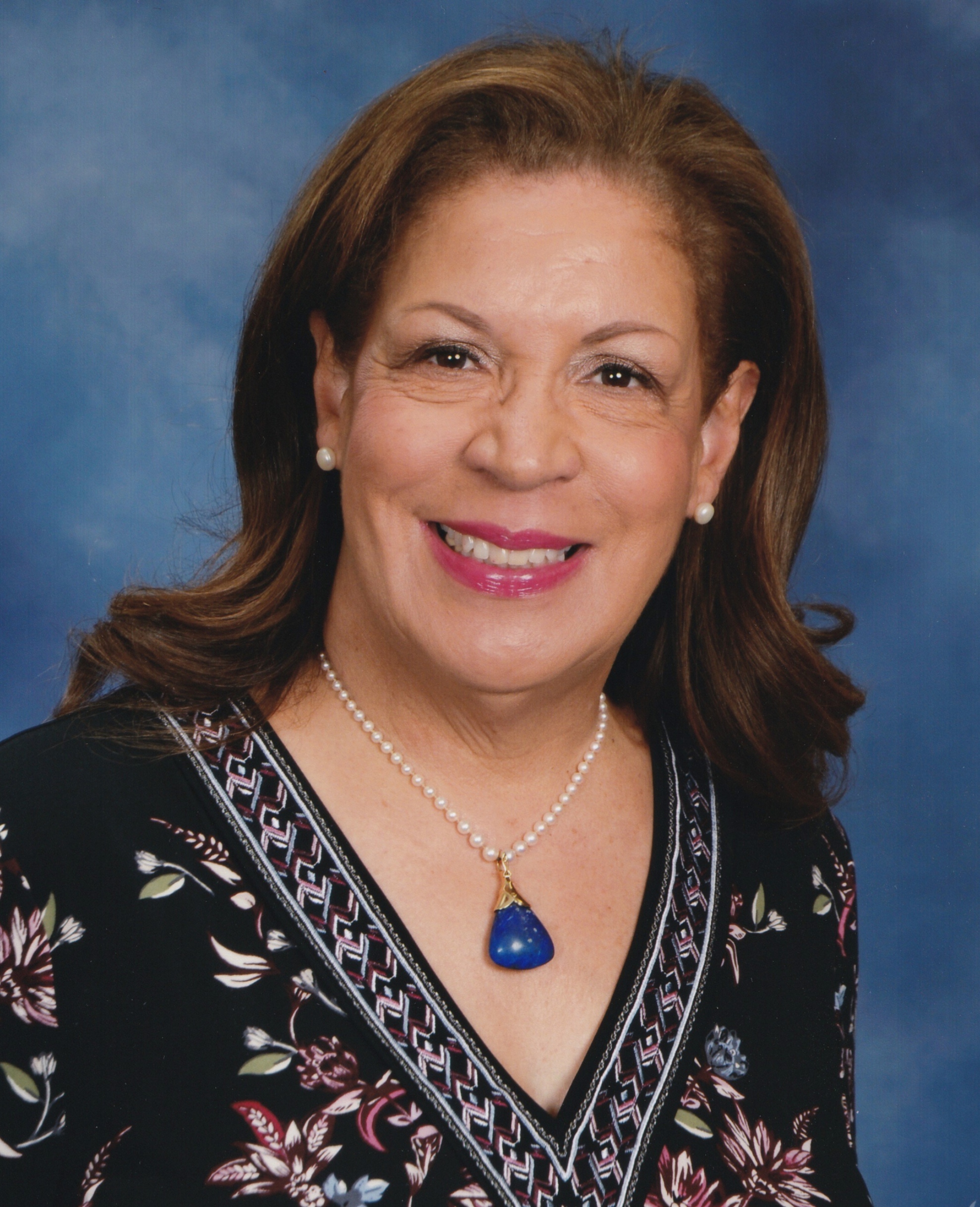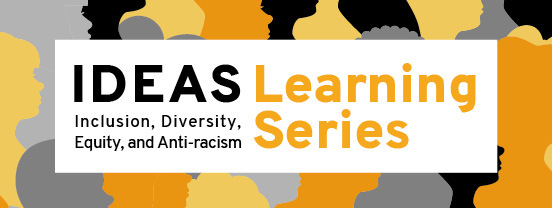
MedBiquitous Community Connection - 2021
-
Register
- User - Free!
“MedBiquitous Community Connection” is a series of free one-hour webinars featuring health professions educators and technology innovators from around the globe. “MedBiquitous Community Connection” provides a forum for community experts to share how digital technologies are promoting improvement and better outcomes across the continuum of health professions education. A portion of each webinar will reserve time for a brief Q&A session, allowing attendees the opportunity to dialogue with guest speakers.
-
Contains 2 Component(s)
“MedBiquitous Community Connection” is a series of free one-hour webinars featuring health professions educators and technology innovators from around the globe.
Are you interested in learning more about MedBiquitous? Join us for our MedBiquitous orientation on September 14, where we will share an overview of the MedBiquitous program, its history, and the vision for the future being created by the Director, Steering Committee, and the community.
MedBiquitous, the data standards program of the AAMC, establishes a common language, understood by both people and machines, that enables data and resource-sharing across organizations in health professions education and credentialing. This common language creates an infrastructure that supports education administration, quality improvement, research, and lifelong learning.
Dr. Johmarx Patton, Director of MedBiquitous, will provide a structured walkthrough of the basics of MedBiquitous during this presentation. There will be ample time for questions and answers so that members of the health professions education and credentialing community at large can learn more about what MedBiquitous can do for them and their organization, as well as how they can contribute to MedBiquitous standards development.
“MedBiquitous Community Connection” is a series of free one-hour webinars featuring health professions educators and technology innovators from around the globe. “MedBiquitous Community Connection” provides a forum for community experts to share how digital technologies are promoting improvement and better outcomes across the continuum of health professions education. A portion of each webinar will reserve time for a brief Q&A session, allowing attendees the opportunity to dialogue with guest speakers.
Please use Google Chrome, Firefox, Edge or Safari on this site. Internet Explorer will not function properly as it is too old to be compatible with the system.

Johmarx Patton, MD, MHI
Director of MedBiquitous
Association of American Medical Colleges
Johmarx Patton, MD, MHI, started his life and career in Michigan. Born and raised in Detroit, he received his undergraduate and medical degrees from the University of Michigan before becoming the first graduate of their Master of Health Informatics program. From there, Dr. Patton began a career in education informatics and learning technologies in support of health professions education.
Creating a team to support the education mission at the University of Michigan Medical School, Dr. Patton served as the bridge between undergraduate medical education and information technology to ensure that the needs of the ever-evolving curriculum were met. Being involved with the AMA, AAMC and MedBiquitous at the national level on projects primarily related to lifelong learning and competency-based education, Dr. Patton has focused his career on the impact of the learner on the healthcare system, and its reciprocal effects, towards the vision of a learning healthcare system. As the Director of MedBiquitous after its transition to the AAMC, Dr. Patton continues his commitment to the development of digital credentials and lifelong learning and employment records for clinicians; capabilities for the exchange of curriculum structure and content between the health professions; and improved access to data locally and nationally for continuous quality improvement and other analytics that will empower learners, educators and administrators.
-
Contains 2 Component(s)
“MedBiquitous Community Connection” is a series of free one-hour webinars featuring health professions educators and technology innovators from around the globe.
In medical systems, data standards are the key to the interoperability kingdom. Without them, you can’t combine a patient’s data from many different sources, find all tests of one kind (e.g., SARS-CoV-2 NAAT tests), or easily convert values of a variable delivered from two different systems that use different units of measure (i.e., pounds or kilograms to measure body weight).
Two kinds of standards are especially important: 1) standards for data structures which define the data structured into records and what kind of slots exist in each record (think of these as data exchange formats, and 2) standards about the coding systems that go into these slots.
Medicare, for example, defines the structure for a billing record and the coding systems such as CPT, HCPCS, or ICD-10 that go into the slots of this structure.
The Office of the National Coordinator for Health Information Technology (ONC) has defined some of the structures required for the exchange of healthcare data (e.g. Health Level 7 [HL7], DICOM, etc.) and the code systems that populate one of the slots (e.g. RxNorm for drugs, SNOMED CT, ICD-10 for problems, and LOINC for laboratory and clinical observations). Recent regulations from ONC and the Centers for Medicare and Medicaid (CMS) that require these standards will go into effect in 2022.
Dr. McDonald will present an overview of major coding systems and data exchange formats used in healthcare, reflecting on his pioneering history in health data standards development, and what recent policy changes may mean for the future. He hopes to demystify what data standards are and how they can help to facilitate access and use by clinicians, patients, and researchers.
“MedBiquitous Community Connection” is a series of free one-hour webinars featuring health professions educators and technology innovators from around the globe. “MedBiquitous Community Connection” provides a forum for community experts to share how digital technologies are promoting improvement and better outcomes across the continuum of health professions education. A portion of each webinar will reserve time for a brief Q&A session, allowing attendees the opportunity to dialogue with guest speakers.
Please use Google Chrome, Firefox, Edge or Safari on this site. Internet Explorer will not function properly as it is too old to be compatible with the system.

Clem McDonald, MD
Chief Health Data Standards Officer, Office of the Director
National Library of Medicine
Dr. McDonald is the Chief Health Data Standards Officer of the National Library of Medicine/NIH. For the previous 12 years, Dr. McDonald served as Director of the Lister Hill National Center for Biomedical Communications (LHNCBC) and Scientific Director of its intramural research program.
His research focuses on electronic medical records (EMRs), their use in clinical care and research, and the data standards needed to feed EMRs and epidemiologic studies of the clinical databases. He is a member of the National Academy of Sciences, and has published more than 300 papers that have garnered 18 thousand citations. Prior to coming to NLM, Dr. McDonald served as a distinguished Professor of Medicine and of Medical Informatics at the Indiana University School of Medicine, and as the Director of the Regenstrief Institute for Health Care, a privately endowed research institute tied to Indiana University.
Dr. McDonald developed the Regenstrief Medical Record, one of the first electronic health record (EHR) systems, and introduced the first use of decision support in randomized trials of health information systems in a 1976 study (McDonald, 1976). He and his colleagues developed the first U.S. Health Information Exchange (HIE), which was the model for the many HIEs that followed, and which now carries 6 billion results from hospitals across Indiana. He developed the Logical Observation Identifier Names and Codes (LOINC) database to provide universal identifiers for clinical observations, was coauthor of the UCUM standard for computable units of measure, one of the founders and authors of the Health Level 7 (HL7) standard, and a major contributor to the genomics reporting chapter of the 2018 HL7 Version 2.5.1 Laboratory Reporting Interface (LRI). He is active in the development of the Fast Healthcare Interoperability Resources (FHIR) Clinical Genomics Reporting implementation guide, and FHIR input forms development (Questionnaire and Structured Data Capture), and has developed web-based software tools to generate executable web forms and clinical flowsheets.
-
Contains 2 Component(s) Recorded On: 05/18/2021
“MedBiquitous Community Connection” is a series of free one-hour webinars featuring health professions educators and technology innovators from around the globe.
This presentation will dive into the Advanced Distributed Learning (ADL) Initiative's 4-pillar data strategy for managing lifelong learning and explore the supporting set of international data standards. These standards exemplify the collective research done at ADL known as the Total Learning Architecture (TLA). The first standard is Experience API, which is a data standard that allows for human and machine readable experience data for human performance data, as well as the traditional knowledge-based data. The second standard that will be discussed is the Learning Activity Metadata standard, which is used to increase the granularity of how learning activities are aggregated and described. This supports the second TLA pillar that captures all available learning opportunities that exist across a learning ecosystem. The third data pillar consists of reusable competencies and competency frameworks, which make up the RCD (Reusable Competency Definition) standard. This standard describes how competencies can be tightly defined, organized, and designed to be shared across organizations. Finally, the fourth pillar of Learner Profiles binds all aspects of the learner - their past, present, and future - into a cohesive data structure. These collective efforts form the TLA and can be leveraged collectively or individually to increase organizational success.
“MedBiquitous Community Connection” is a series of free one-hour webinars featuring health professions educators and technology innovators from around the globe. “MedBiquitous Community Connection” provides a forum for community experts to share how digital technologies are promoting improvement and better outcomes across the continuum of health professions education. A portion of each webinar will reserve time for a brief Q&A session, allowing attendees the opportunity to dialogue with guest speakers.
Please use Google Chrome, Firefox, Edge or Safari on this site. Internet Explorer will not function properly as it is too old to be compatible with the system.

Andy Johnson: Webinar Facilitator
Specifications and Standards Manager
ADL Team MembersAshley Howell
Project ManagerYihua Liu
Data AnalystHunter Smith
Software EngineerFlorian Tolk
Software EngineerThese ADL Team members each bring a passion and interest to various topic areas to match their diverse interests, backgrounds, and research areas. Andy Johnson is the Specifications and Standards Manager at ADL and oversees both those efforts and their impact on policy. Ashley Howell is an expert project manager overseeing DoD modernization efforts that ADL is researching. Yihua Liu is a Data Analyst who has a keen interest in Experience API and the capabilities it can enable. Florian Tolk and Hunter Smith are both software engineers. Florian has an interest on competency and credentialing systems while Hunter's focus has been on metadata and learner profiles.
-
Contains 2 Component(s)
“MedBiquitous Community Connection” is a series of free one-hour webinars featuring health professions educators and technology innovators from around the globe.
A consistent challenge that MedBiquitous has been called upon to address is bringing to bear a distributed set of tools and resources in support of health professions education (HPE) and credentialing. Although the MedBiquitous community has answered this call on multiple occasions, the challenge remains that the adoption of the standards and guidelines produced by the community occurs only in niche pockets, rather than by the HPE community at large.
We are delighted to announce the launch of a new program initiative “MedBiquitous 2030.”
In the last year, the global COVID-19 pandemic has exposed the fragility of our existing technology infrastructure. The delivery of education and the verification of credentials are just two examples of high-level processes that were disrupted and rapidly modified to accommodate changes that accompanied the pandemic. In almost every case, silos between existing technologies and data sets were made abundantly apparent, and integration and interoperability were touted as solutions to this dilemma.
In early April, the white paper “MedBiquitous 2030: Building the Digital Ecosystem for Health Professions Education” will be posted in our public comment forum for feedback. This draft has been reviewed by the Steering Committee and its subcommittees. This final draft of the white paper will be available for 30 days before comments are collected and integrated into a version that will be published on our website.
Hosted by Dr. Johmarx Patton, the April 20 episode of the "MedBiquitous Community Connection" webinar series will explain the direction that MedBiquitous is taking and provide a forum for the community to ask questions.
“MedBiquitous Community Connection” is a series of free one-hour webinars featuring health professions educators and technology innovators from around the globe. “MedBiquitous Community Connection” provides a forum for community experts to share how digital technologies are promoting improvement and better outcomes across the continuum of health professions education. A portion of each webinar will reserve time for a brief Q&A session, allowing attendees the opportunity to dialogue with guest speakers.
Please use Google Chrome, Firefox, Edge or Safari on this site. Internet Explorer will not function properly as it is too old to be compatible with the system.

Johmarx Patton, MD, MHI
Director of MedBiquitous
Association of American Medical Colleges
Johmarx Patton, MD, MHI, started his life and career in Michigan. Born and raised in Detroit, he received his undergraduate and medical degrees from the University of Michigan before becoming the first graduate of their Master of Health Informatics program. From there, Dr. Patton began a career in education informatics and learning technologies in support of health professions education.
Creating a team to support the education mission at the University of Michigan Medical School, Dr. Patton served as the bridge between undergraduate medical education and information technology to ensure that the needs of the ever-evolving curriculum were met. Being involved with the AMA, AAMC and MedBiquitous at the national level on projects primarily related to lifelong learning and competency-based education, Dr. Patton has focused his career on the impact of the learner on the healthcare system, and its reciprocal effects, towards the vision of a learning healthcare system. As the Director of MedBiquitous after its transition to the AAMC, Dr. Patton continues his commitment to the development of digital credentials and lifelong learning and employment records for clinicians; capabilities for the exchange of curriculum structure and content between the health professions; and improved access to data locally and nationally for continuous quality improvement and other analytics that will empower learners, educators and administrators.
-
Contains 2 Component(s)
“MedBiquitous Community Connection” is a series of free one-hour webinars featuring health professions educators and technology innovators from around the globe.
Dr. Scott’s webinar on Feb. 16 will focus on the influence MedBiquitous has had on her development and design of simulation-based education for both the healthcare team and patients. As a prelude to her personal story and in honor of Black History month, Dr. Scott will introduce the collective memory of the healing arts among African-Americans which led her to become the first female African-American cardiothoracic surgeon. Her recent academic interests have focused on educational technologies and simulation. Dr. Scott will describe her strategies to develop the first regional simulation program in the VA, which included both mobile, virtual and center-based activities targeting basic training, professional development and patient education. She will conclude with a vision for how MedBiquitous standards could lead to a digital ecosystem supporting simulation-based health professions education designed to achieve and maintain competence and provide an adaptive curriculum for the individual learner.
“MedBiquitous Community Connection” is a series of free one-hour webinars featuring health professions educators and technology innovators from around the globe. “MedBiquitous Community Connection” provides a forum for community experts to share how digital technologies are promoting improvement and better outcomes across the continuum of health professions education. A portion of each webinar will reserve time for a brief Q&A session, allowing attendees the opportunity to dialogue with guest speakers.
Please use Google Chrome, Firefox, Edge or Safari on this site. Internet Explorer will not function properly as it is too old to be compatible with the system.

Dr. Rosalyn Scott
Professor of Surgery
Charles R. Drew University of Medicine and Science
Rosalyn P. Scott, MD, MSHA, is a nationally recognized expert in the implementation of simulation technologies for both professional and patient education. She is a recipient of the Under Secretary for Health Excellence in Clinical Simulation Training, Education, and Research Practice Award for her innovative work in Veterans Affairs. As Co-chair of MedBiquitous’ Competencies Working Group, she led the development of ANSI-accredited XML standards and supporting guidelines for competency and performance data. A graduate of Rensselaer Polytechnic Institute, New York University School of Medicine and University of Colorado College of Business, Dr. Scott has held key faculty positions in both colleges of medicine and engineering. She is currently consulting with Charles R. Drew University of Medicine and Science as they develop an independent medical education program in their College of Medicine.

